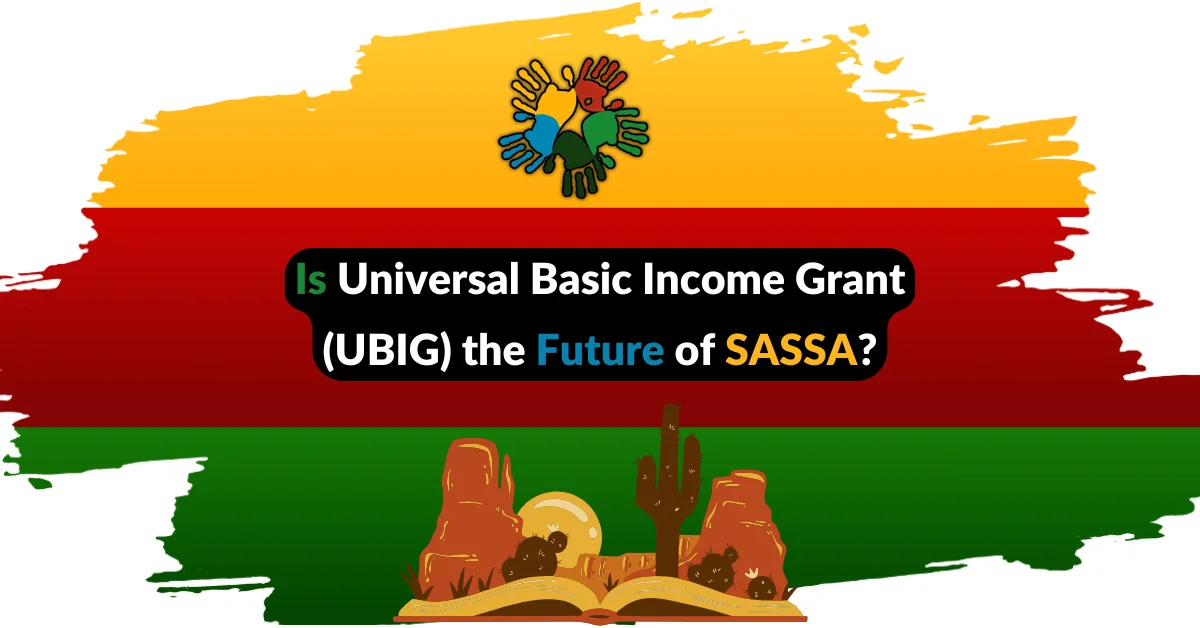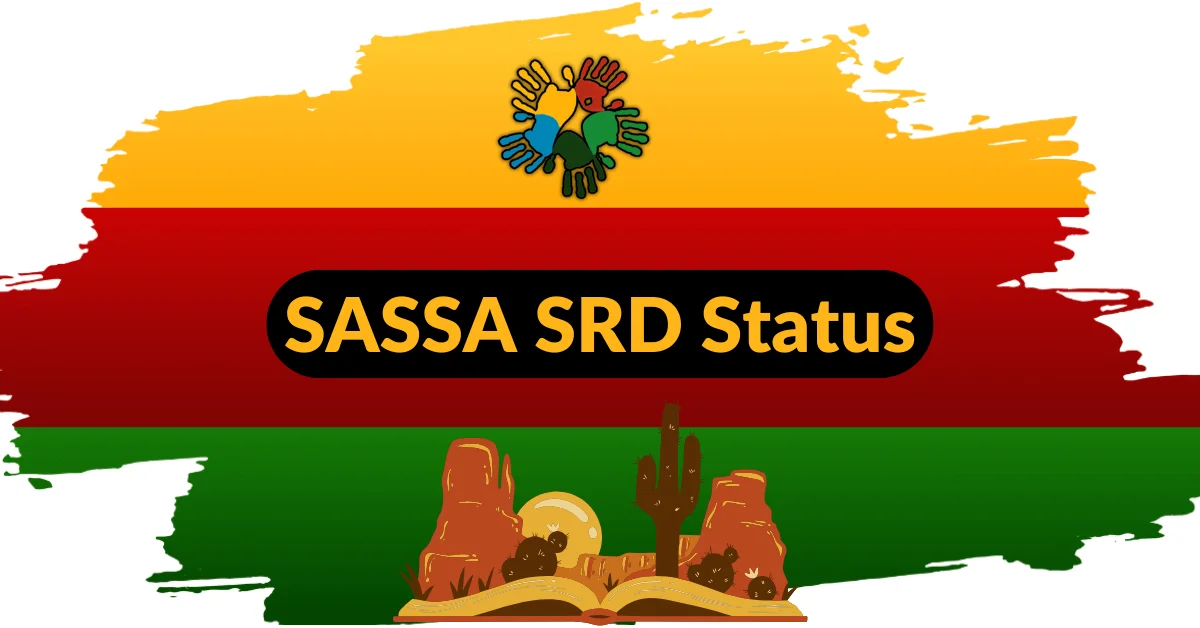Have you ever wondered what will happen to millions of South Africans when the SASSA SRD R370 Social Relief of Distress (SRD) grant ends in March 2025? For many families, this grant is more than just financial support it’s a lifeline.
The South African Social Security Agency (SASSA) faces mounting pressure to find a sustainable solution. Could a Universal Basic Income Grant (UBIG) be the answer?
Let’s explore the possibilities, challenges, and implications of UBIG for South Africa’s future.
Is Universal Basic Income Grant (UBIG) the Future of SASSA? (Quick Summary)
A Universal Basic Income Grant (UBIG) could reshape South Africa’s social security system, replacing targeted grants with unconditional cash payments for all citizens. Advocates highlight its potential to reduce poverty and stimulate the economy, while critics raise concerns about cost and feasibility. As the R370 SRD grant ends, UBIG offers a bold but complex solution to support vulnerable communities.
What is Universal Basic Income Grant (UBIG)?
A Universal Basic Income Grant (UBIG) offers regular, unconditional cash payments to every citizen, regardless of their income or employment status. Unlike targeted grants, UBIG aims to create a safety net for all, ensuring economic stability and reducing income inequality.
The End of the SASSA SRD R370 Grant: A Critical Turning Point
The scheduled termination of the R370 SRD grant leaves millions vulnerable. Introduced as a temporary relief measure during the pandemic, this grant provided critical support for struggling households. Its impending end raises urgent questions about how South Africa can protect its most vulnerable citizens in the long term.
Arguments in Favor of UBIG
1. Alleviating Poverty and Inequality
UBIG could significantly reduce poverty and inequality by guaranteeing a basic income for everyone. Unlike the SRD or targeted grants, it eliminates bureaucratic hurdles and ensures that no one is left behind.
2. Boosting Economic Security
A guaranteed income provides families with the stability to cover essential expenses, reducing financial stress and improving quality of life.
3. Stimulating Economic Growth
With more disposable income, households can increase spending, which could drive economic activity and benefit local businesses.
4. Simplified Administration
Administering UBIG is straightforward compared to managing multiple targeted grants. This could reduce administrative costs and improve efficiency.
Challenges and Concerns About UBIG
1. Fiscal Sustainability
Critics argue that UBIG’s implementation could strain government resources. South Africa would need to identify reliable funding mechanisms, such as tax reforms or reallocating existing budgets.
2. Work Disincentives
Some worry that UBIG might discourage people from seeking employment, particularly in low-paying jobs.
3. Inflation Risks
An increase in consumer spending might lead to inflation, negating some of UBIG’s benefits.
4. Logistical Challenges
Implementing UBIG nationwide requires robust systems to prevent fraud and ensure accurate delivery, which could be complex in a country with significant infrastructure disparities.
Lessons from Global UBIG Experiments
Countries like Finland, Canada, and Kenya have piloted UBIG programs, offering valuable insights:
- Finland: Reported improved mental well-being among participants but limited effects on employment.
- Kenya: Observed economic stimulation in local markets but emphasized the need for sustainable funding.
- Canada: Focused on small-scale pilot programs with mixed results.
These case studies highlight both the potential and limitations of UBIG, underscoring the importance of tailoring solutions to local contexts.
Could UBIG Replace Targeted Grants?
Transitioning from targeted grants to UBIG would mark a significant shift in South Africa’s social security framework. While targeted grants like the Child Support Grant and Old Age Pension address specific needs, UBIG could provide universal coverage. However, a hybrid approach might be more feasible, combining UBIG with targeted assistance for high-need groups.
Funding UBIG: Is It Possible?
Financing UBIG requires innovative strategies, such as:
- Progressive Taxation: Increasing taxes on high-income earners and corporations.
- Public-Private Partnerships: Leveraging private sector support to fund social programs.
- Resource Reallocation: Redirecting funds from less effective programs to UBIG.
Transparent financial planning is crucial to ensure long-term sustainability.
A Phased Approach to UBIG Implementation
South Africa could explore a phased rollout of UBIG, starting with pilot programs in vulnerable regions. This approach would allow policymakers to assess the program’s impact, gather data, and make necessary adjustments before scaling up nationwide.
The Road Ahead: Policy and Public Discourse
The decision to adopt UBIG demands extensive public engagement and collaboration among stakeholders, including:
- Economists: To assess financial viability.
- Social Scientists: To study the program’s social impact.
- Civil Society Organizations: To advocate for marginalized communities.
A well-informed, inclusive debate can ensure that any proposed changes address South Africa’s unique challenges and opportunities.
The Future of Social Security in South Africa
As the termination of the R370 grant looms, South Africa stands at a crossroads. UBIG offers a bold vision for a more equitable society but comes with significant challenges. While it may not be an immediate solution, UBIG deserves serious consideration as part of a comprehensive strategy to reduce poverty, foster economic security, and build a resilient social safety net for all.
Contents
- 1 Is Universal Basic Income Grant (UBIG) the Future of SASSA? (Quick Summary)
- 2 What is Universal Basic Income Grant (UBIG)?
- 3 The End of the SASSA SRD R370 Grant: A Critical Turning Point
- 4 Arguments in Favor of UBIG
- 5 Challenges and Concerns About UBIG
- 6 Lessons from Global UBIG Experiments
- 7 Could UBIG Replace Targeted Grants?
- 8 Funding UBIG: Is It Possible?
- 9 A Phased Approach to UBIG Implementation
- 10 The Road Ahead: Policy and Public Discourse
- 11 The Future of Social Security in South Africa






